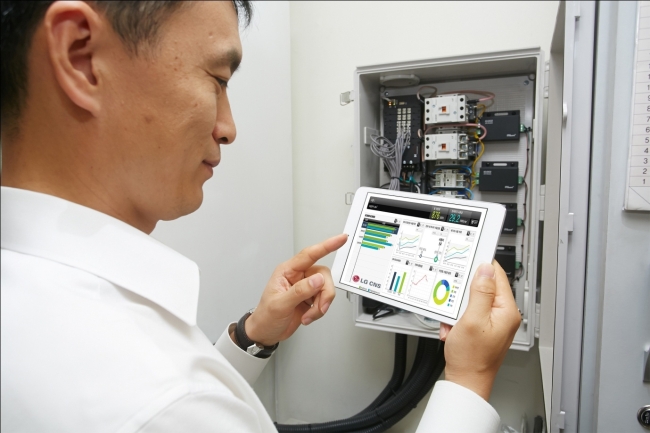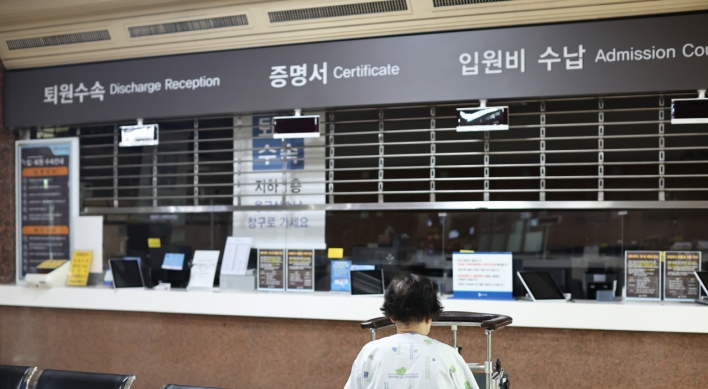LG CNS boosts ICT-enabled energy efficiency
IT service provider focuses on investment in green energy industries
By Korea HeraldPublished : Sept. 11, 2013 - 20:47
LG CNS, an information technology service provider, is pushing to expand the use of smart energy management systems in line with growing interest in power saving and renewable energy around the world.
Last month, LG CNS launched its energy management system for small and medium-sized shops, which is designed to reduce energy consumption and simplify energy management.
The system automatically cuts off standby power ― power consumed by electronics while they are switched off or in standby mode ― when business hours are set by users.
Last month, LG CNS launched its energy management system for small and medium-sized shops, which is designed to reduce energy consumption and simplify energy management.
The system automatically cuts off standby power ― power consumed by electronics while they are switched off or in standby mode ― when business hours are set by users.

By turning off energy-consuming electric signs at night, for instance, stores can have energy savings of more than 20 percent.
Store owners can also simply turn on and off devices like coolers, heaters, lighting, and electric signs with their smartphones.
LG CNS control center, which collects and monitors each store’s energy use in real time, provides energy-saving solutions if a store appears to have excessive power consumption.
During a pilot project that ran from December to July, the company said 100-square-meter stores, which previously used 3,000 kWh per month, saved some 600 kWh on average.
On top of the energy management system, LG CNS has recently made a heavy investment in green energy industries.
In July, the company installed energy storage and management systems at the LG solar energy power plant project in Taean, South Chungcheong Province, to create a “microgrid.” This is aimed at maximizing the power generation efficiency of the plants.
Microgrids maximize energy efficiency over limited areas, such as universities, plants, research centers and factories. They are core parts of smart grids, which exchange power information over much wider areas.
The microgrid solution links its energy storage system to generators and other power plant facilities and automatically manages them via the energy management system.
Generally, renewable energy generation output fluctuates sharply depending on the weather. The energy supply is therefore not stable, and power also needs to be supplied from outside to run the plant.
However, LG CNS’ energy storage system is capable of saving surplus power when the demand is low or the climate is good for generation. The saved energy can be used during peak times or for plant operations.
“LG CNS developed the solution based on expertise from the Jeju smart grid demonstration project. The microgrid solution project at the solar power plant has proven successful,” said Lim Dong-hui, a manager of the global strategic division at LG CNS. “The power consumption of the plant was reduced around 65 percent.”
An industry source said, “Currently, there is no strong demand yet as it is costly to adopt the energy storage system, which uses expensive batteries. However, it has the potential to grow when more support measures such as subsidies and tax benefits are introduced or industrial power bills rise.”
By Shin Ji-hye (shinjh@heraldcorp.com)
-
Articles by Korea Herald




![[AtoZ Korean Mind] Does your job define who you are? Should it?](http://res.heraldm.com/phpwas/restmb_idxmake.php?idx=644&simg=/content/image/2024/05/06/20240506050099_0.jpg&u=)














